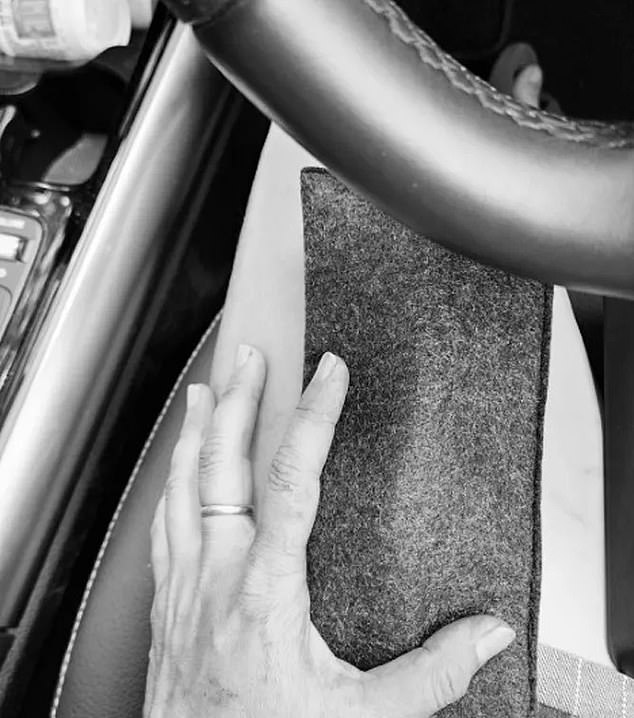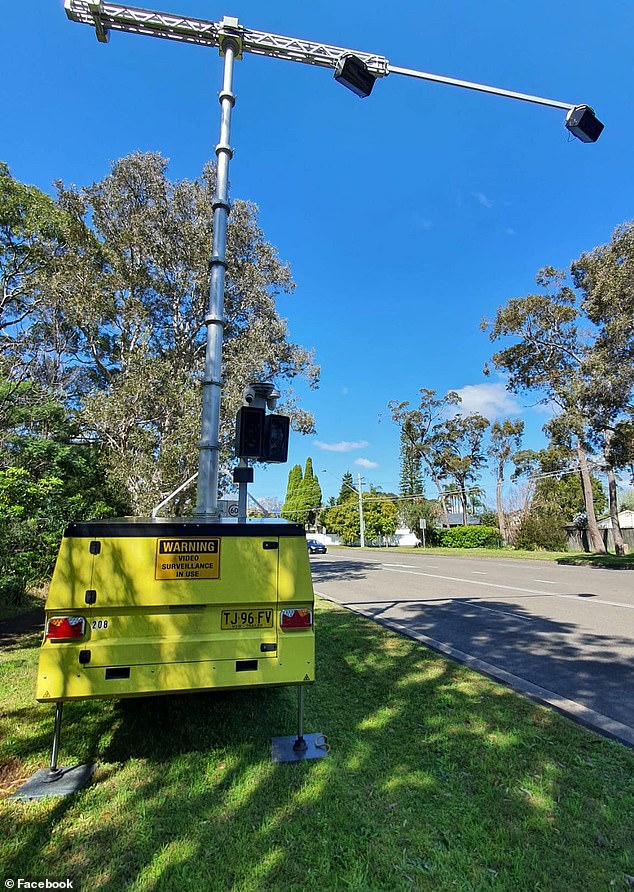Sydney driver fined $387 for holding her phone on Hume Highway is adamant the traffic camera caught her holding something else entirely
A driver has claimed she was fined $387 in the mail for using her phone behind the wheel but the roadside camera caught her while she was holding her glasses case.
Ms Lee, who asked that her first name not be used, said the photo is from January 9 this year, when she was driving back to Sydney on the Hume Highway after a trip to Melbourne.
“It was evening, so I took off my sunglasses, that’s what I was doing. It looks like my sunglasses cover,” Ms Lee shared Yahoo News.
She protested the fine – and five demerit points – to NSW authorities, explaining she did not need to use her phone while driving.
“I have Android Auto, you don’t have to touch my phone, I can give voice commands,” she said.
The driver said she was fined for holding her phone, but it was actually her glasses case (pictured)

“It was evening, so I took off my sunglasses, that’s what I was doing. It looks like my sunglasses case (pictured),” Ms Lee said
She also sent Revenue NSW a photo of the glasses case in question resting on her lap in the driver’s seat, similar to how it appeared in the photo, to show how the ‘mistake’ could have occurred.
But Revenue NSW sent her a reply saying the fine would remain in force.
“We have reviewed the footage and are satisfied that the fine was imposed correctly… a driver in a vehicle that is not parked cannot hold a phone in their hand or against their body,” a letter to Ms Lee said.
Ms Lee, who is between jobs, said the fine was a blow to her pocket.
“Why would we initiate a review process if they’re not going to do anything about it? It’s a large sum of money.’
Overhead detection cameras for mobile phones are widely used in Australia.

Mobile phone cameras found in NSW have led to many fines, including this one in northern Sydney
Queensland and Victoria recently upgraded the cameras’ capabilities to also detect people not wearing seat belts.
NSW will follow suit from July 1.
The ACT wants to expand the scope of the equipment even further in the coming years, allowing it to read license plates and automatically check whether cars are registered and insured.
